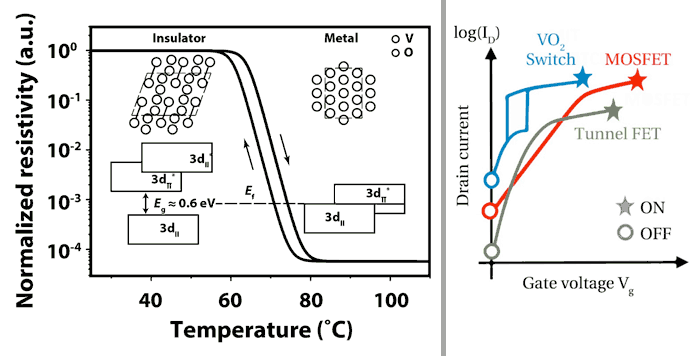Scientists at the ?cole polytechnique f?d?rale de Lausanne (EPFL), Switzerland, are rather excited about the properties and possibilities they see in vanadium dioxide (VO2). In a news post today, on the EPFL blog, it was claimed that VO2 could outperform silicon and give rise to a new generation of electronics. The scientists see great opportunities for the material in pushing possibilities - especially in the fields of space communication systems, neuromorphic computing, and high-frequency radars.
VO2 is very interesting to scientists as it behaves as an insulator at room temperature but as a conductor at temperatures above 68?C. The insulator-conductor change occurs because at that temperature the material changes from a crystalline atomic structure to a metallic one. Such a property change is called a ?metal-insulator transition?, or MIT for short. The phase change in VO2 takes less than a nanosecond ? an attractive property for electronics.
The EPFL blog explains that the MIT occurs at a temperature too low to be useful in electronics. However, EPFL researchers have managed to get the MIT to trigger at temperatures above 100?C by adding germanium to VO2.
Electronically interesting properties of VO2 don?t end with the above. ?VO2 is also sensitive to other factors that could cause it to change phases, such as by injecting electrical power, optically, or by applying a THz radiation pulse,? says Adrian Ionescu, the EPFL professor who heads the school?s Nanoelectronic Devices Laboratory (Nanolab) and also serves as the Phase-Change Switch project coordinator.







 Reply With Quote
Reply With Quote

 Particle's First Rule of Online Technical Discussion:
Particle's First Rule of Online Technical Discussion: Rule 1A:
Rule 1A: Rule 2:
Rule 2: Rule 2A:
Rule 2A: Rule 3:
Rule 3:

Bookmarks